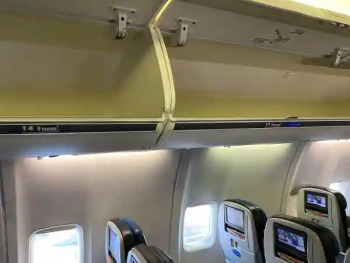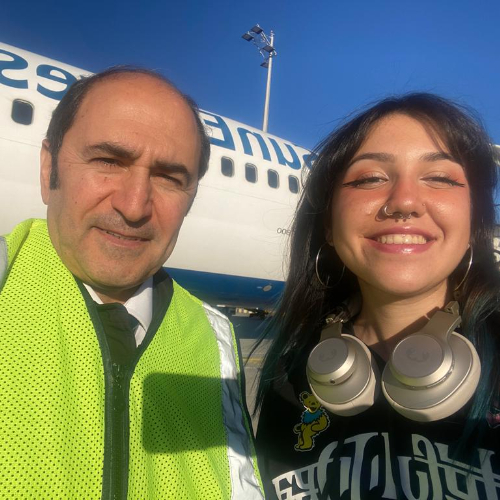People worldwide practice their superstitious rituals daily, with aviation being no exception. For multiple reasons, these rituals can occur before, during, or after a flight.

For a widely known start, 13 is an unlucky number for many Western cultures. Operating a flight on the thirteenth of the month, especially Friday the 13th, or sitting in row 13 in the aircraft are some of the many things that make people uncomfortable, considering also some hotels do not have the 13 numbered rooms in some tourist locations. This lack of sympathy for the number itself resulted in airlines such as KLM not having row 13. Inside the aisle, row numbers jump from 12 to 14 directly. This way, nobody has to sit in the "cursed" seat during their flight.
However, since countries' cultures differ, this unlucky number becomes 17 with Italian carriers. If a person is taking a flight with an Italian airline, row 17 will likely be missing in addition to 13. The reason for excluding 17 is that when the number is written in Roman numeral, it is XVII, which also spells as "vixi" in Latin. Vixi means "I have lived," which could easily be interpreted as "I have lived enough and I will die." Therefore, 17 becomes yet another unlucky number.
The commercial airline company SunExpress does not have both numbers in their aircraft. Flying can be a stressful event for many people. The passengers find their way to stay calm and oriented during superstitious rituals. Some people touch the outside of the aircraft as they are boarding, and some need the support of the person with them, usually holding their hand during takeoff.
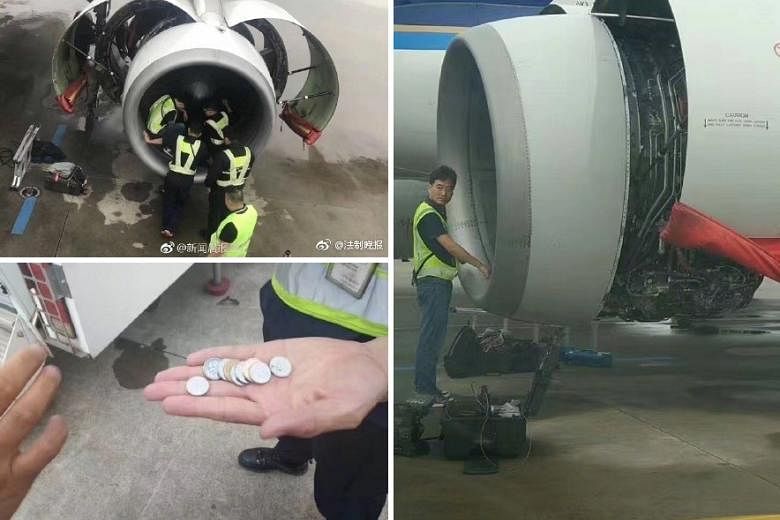
In China, people believe that throwing coins at an aircraft before a flight brings good luck, but this act could cause dangers and delays since the metal coins and the aircraft's engines do not go well together. The coins should be cleared out of the way before takeoff so as not to cause any unfortunate events. As a result of this act, a Chinese passenger had to pay a 15,000 euro fine to an airline after his efforts to throw coins into one of the engines while boarding.
It is more common for passengers to contribute to superstitious acts. However, pilots and companies who also actualize rituals are common too. For the C-5 (Lockheed C-5 Galaxy) aircraft flights, "no pilots should dress in the flight suit prior to as that might prevent the alert, and no pilot shall eat their box lunch before takeoff, also to prevent this NOT happening." states a commercial and military pilot named Frederick considering the C-5's tendency for "breaking." He also adds that on the Boeing 737, when the pilots hit persistent turbulence, which results in turning on the seatbelt light, they rub the button before pushing to "let the plane know" in hopes the turbulence will stop.
Many pilots tap or rock the wings of their plane pre-flight so as not to get the signature forehead scar of a Cessna pilot. Also, Cessna pilots wiggle their butt front and back while they are in their seats to make sure they are locked since the Cessna seats have been known to unlock from their position sending the pilots suddenly jerking forward. Many pilots talk to their plane before and during takeoff, and this may come out like a prayer. They share their wishes from that flight and expect safety from the aircraft itself, and these phrases may include "Let us fly safely." or "Take care of my crew and me."
When the flights are planned for that month, and some of the colleagues require a change in the plan, and when another pilot is asked to operate the flight, some do not take that flight. Because they believe that flight is the destiny of the planned pilot and that if someone else takes over, something wrong might happen during the operation.
Some military pilots leave their rooms clean and tidy before going for a flight in case something tragic happens during the operation, and they may also leave their journal entries open. Many pilots believe that thinking the worst beforehand prevents it from happening, but some think it might also attract bad energy to the flight. Also, it is considered unlucky to have conversations about plane crushes while in the cockpit, both on the ground and while flying.
The crew should not point at the sky because it might trigger bad weather, and if a pilot is complimenting the weather, it should be only about the sun and not the weather itself since it is believed it could also get the weather conditions angry.
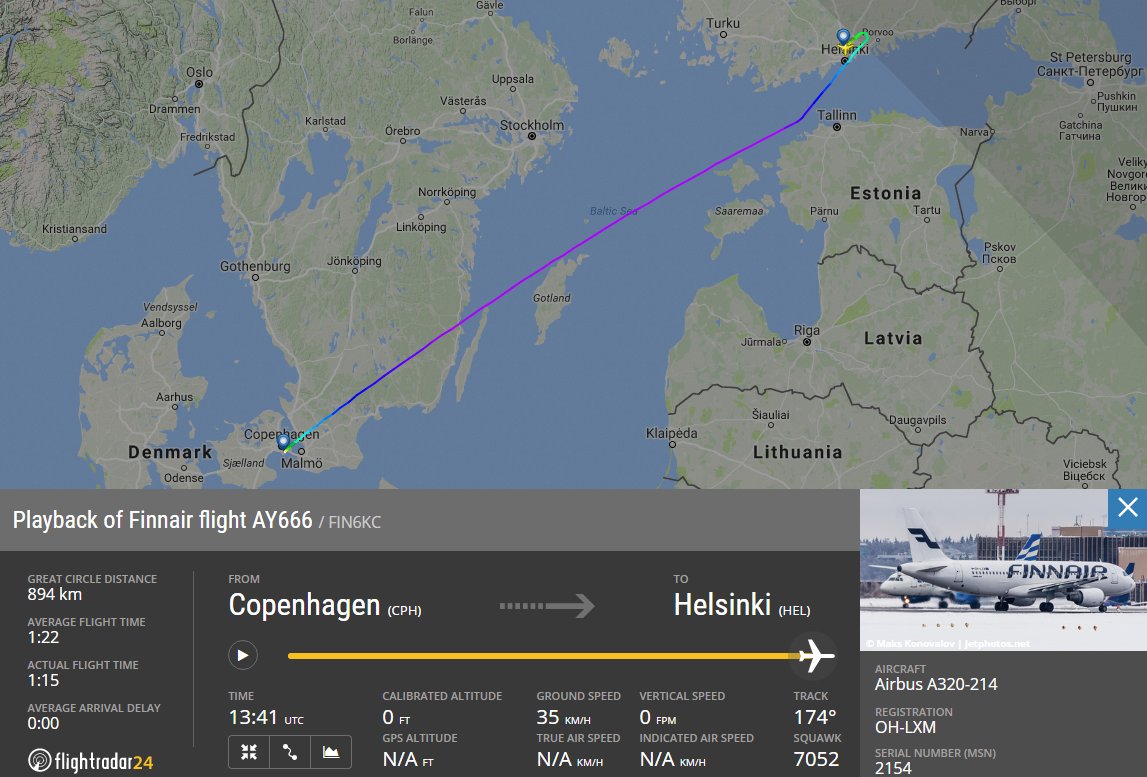
Many combat fliers carried personal charms like lucky coins, teddy bears, and some dressing pieces in a particular way. And of the strangest is the pilot dancing on the wing of the aircraft with an open umbrella before entering the fuselage of a heavy bomber for at least five minutes. Also, kicking a certain tire, spitting on the tailfin, or placing chewing gum on the wing.
Superstitious rituals are a very human and common thing that still exists in every branch of work, including aviation. These acts help people feel under control and organized before doing something that might make them uncomfortable or nervous. It does not particularly mean that working or avoiding "unlucky" numbers will prevent the situation from happening. The Finnair flight 666 has been fine with the destination HEL (Helsinki) operating on Friday the 13th at the 13th hour.
Comments (0)
Add Your Comment
SHARE
TAGS
INFORMATIONAL Superstition Ritual Flights Strange Pilot Passengers WeirdRECENTLY PUBLISHED
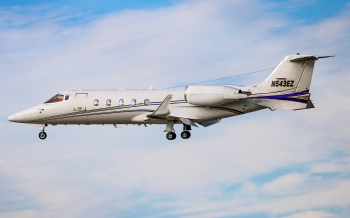 Learjet Owned By Vince Neil Crashes Into Gulfstream Jet, 1 Fatality Confirmed
On February 10th, around 14:30 local time, a Learjet private jet aircraft crashed into another private jet after landing at Scottsdale Airport (SCF) in Arizona.
NEWS
READ MORE »
Learjet Owned By Vince Neil Crashes Into Gulfstream Jet, 1 Fatality Confirmed
On February 10th, around 14:30 local time, a Learjet private jet aircraft crashed into another private jet after landing at Scottsdale Airport (SCF) in Arizona.
NEWS
READ MORE »
 Seattle Plane Strike 2025: Japan Airlines and Delta Collision Raises Safety Concerns
Seattle-Tacoma International Airport saw a concerning incident on Wednesday morning when a Japan Airlines (JAL) plane clipped a parked Delta Air Lines jet while taxiing. Thankfully, no one was injured, but passengers described the collision as a frightening experience.
NEWS
READ MORE »
Seattle Plane Strike 2025: Japan Airlines and Delta Collision Raises Safety Concerns
Seattle-Tacoma International Airport saw a concerning incident on Wednesday morning when a Japan Airlines (JAL) plane clipped a parked Delta Air Lines jet while taxiing. Thankfully, no one was injured, but passengers described the collision as a frightening experience.
NEWS
READ MORE »
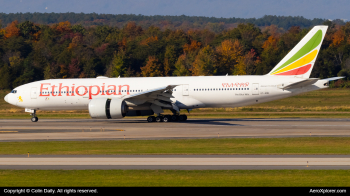 Ethiopian Airlines Expands Cargo Fleet with New Boeing 777 Freighter
Ethiopian Airlines has expanded its cargo fleet with a brand-new Boeing 777 Freighter, registered as ET-BAB (MSN 68140). The aircraft was delivered directly from Boeing’s factory in Everett, Washington, USA, and landed at Addis Ababa Bole International Airport at 3:41 PM (GMT+3) on Wednesday, January 22, 2025.
NEWS
READ MORE »
Ethiopian Airlines Expands Cargo Fleet with New Boeing 777 Freighter
Ethiopian Airlines has expanded its cargo fleet with a brand-new Boeing 777 Freighter, registered as ET-BAB (MSN 68140). The aircraft was delivered directly from Boeing’s factory in Everett, Washington, USA, and landed at Addis Ababa Bole International Airport at 3:41 PM (GMT+3) on Wednesday, January 22, 2025.
NEWS
READ MORE »



